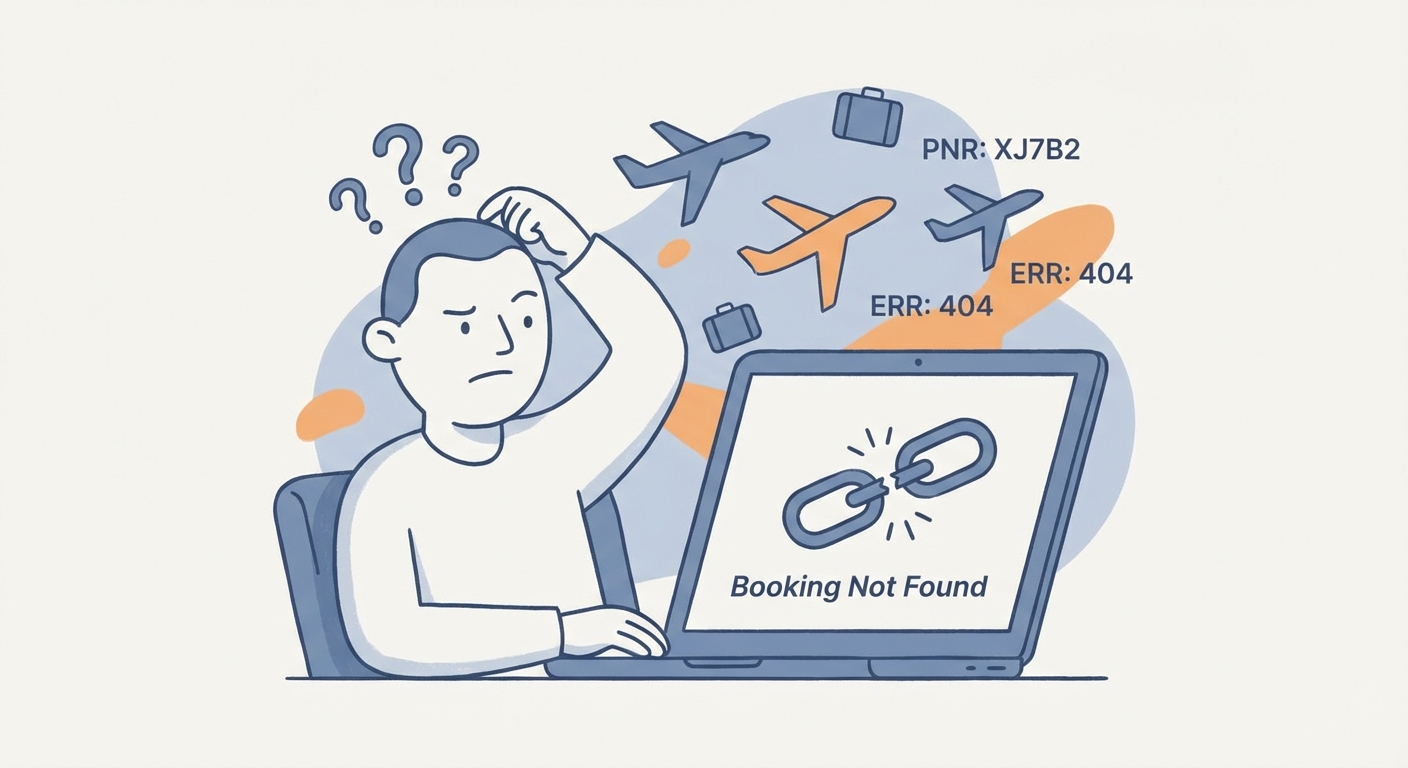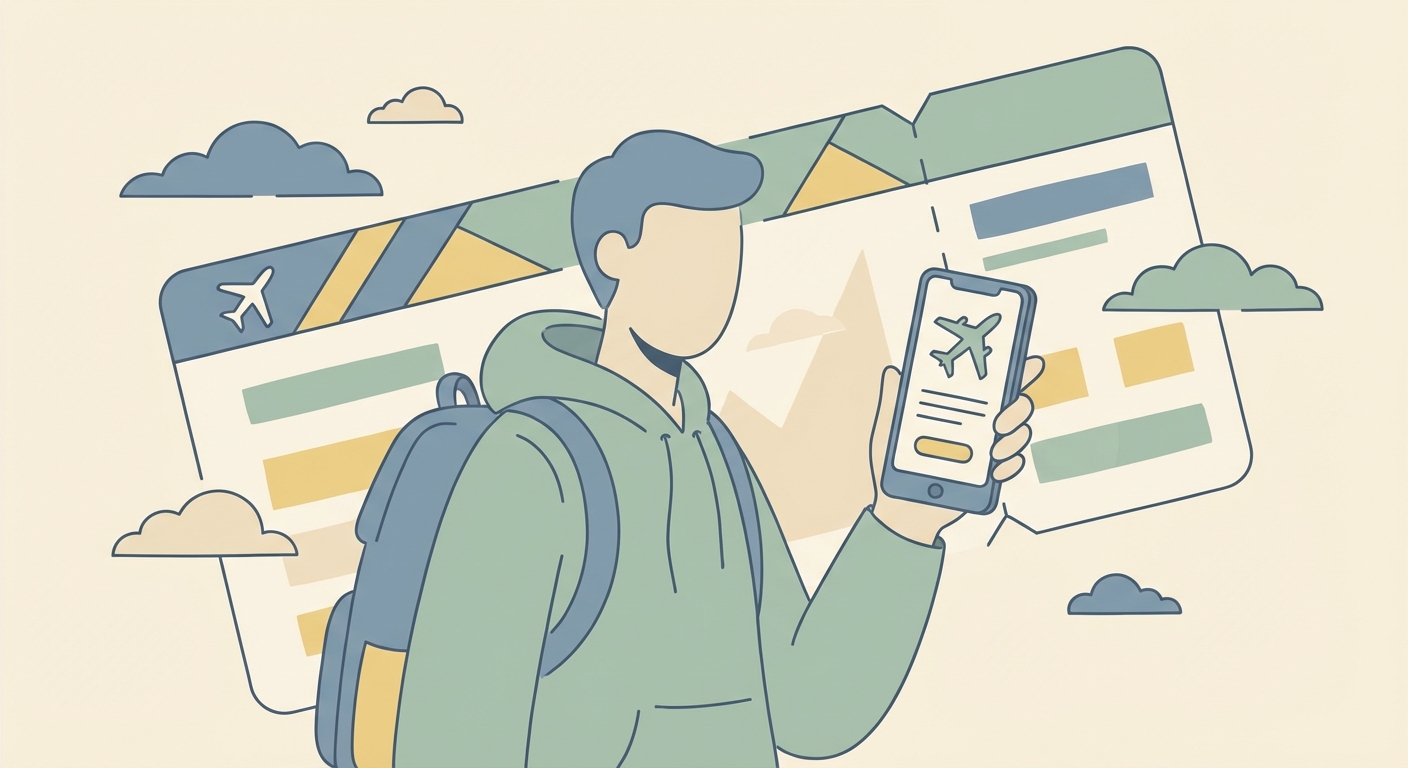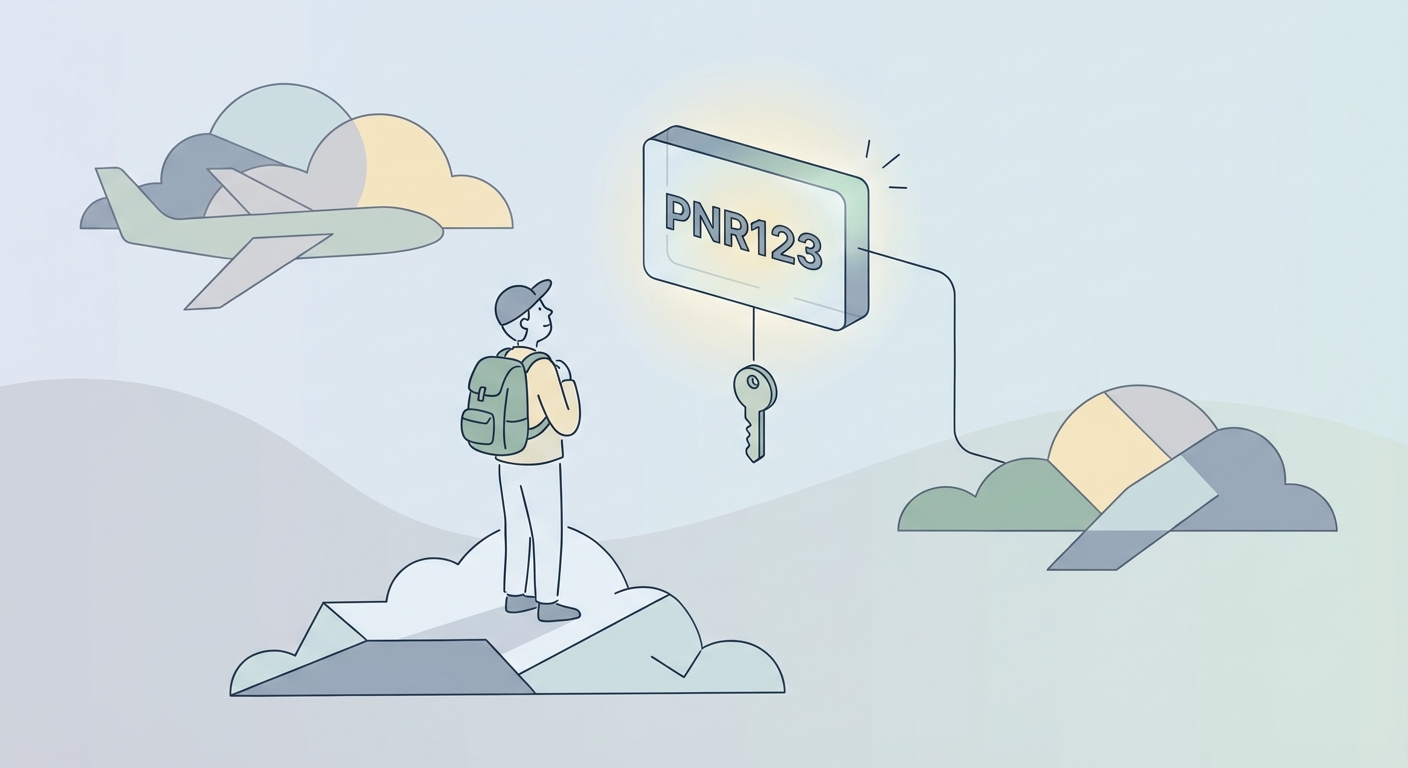Unlock Your Wanderlust: How 5G is Revolutionizing Travel Experiences
TL;DR
- This article explores how 5G technology is transforming travel, offering immersive experiences, seamless connectivity, and personalized planning. From real-time translation and augmented reality tours to enhanced booking platforms and remote destination access, discover how 5G is making travel more accessible and adventurous.
The Dawn of Hyper-Connectivity: 5G and the Modern Traveler
Imagine instant access to anything you need while exploring a new city, from real-time translations to immersive cultural experiences. 5G is poised to make this a reality for travelers worldwide.
5G technology brings a significant upgrade in speed and responsiveness. Compared to 4G, 5G offers much faster data speeds and lower latency. This means quicker downloads, smoother streaming, and near-instant responses, all of which enhance the travel experience.
- 5G's speed supports real-time data transfer, crucial for applications like augmented reality and instant language translation. This allows travelers to navigate foreign environments more easily and access information on the fly.
- 5G networks can handle a higher density of connected devices. This is especially important in crowded tourist spots, airports, and public transportation hubs where many users are online simultaneously.
- The improved reliability of 5G ensures seamless access to travel information and services, even in remote areas where connectivity is traditionally poor. This is vital for safety and convenience.
Travelers often face frustrating connectivity issues that can detract from their experiences. 5G offers solutions to these common problems.
- 5G addresses spotty Wi-Fi and limited bandwidth in airports, hotels, and on public transport. With 5G, travelers can rely on a stable, high-speed connection for work or leisure.
- 5G improves navigation and location services in areas with weak GPS signals. This is particularly useful in dense urban environments or mountainous regions.
- Travelers can access high-bandwidth applications and services without expensive roaming charges. This makes international travel more affordable and convenient.
For instance, imagine using AR to overlay historical information onto real-world landmarks or downloading high-resolution maps in seconds. These are just a few examples of how 5G can transform the way we travel.
As 5G networks continue to expand, the possibilities for innovation are endless. Now, let's dive into how 5G will enable advanced AR and VR applications for tourism.
Immersive Destination Experiences Powered by 5G
Imagine exploring a new city where every street corner comes alive with interactive stories and hidden gems, thanks to augmented reality. 5G is making this dream a tangible reality.
5G's high bandwidth and low latency are perfect for delivering seamless AR and VR experiences. These technologies transform tourism by adding layers of digital information to the real world.
- Imagine walking through ancient Rome, and seeing digital reconstructions of buildings as they stood centuries ago. AR apps, powered by 5G, can overlay historical information, 3D models, and interactive elements onto the actual ruins.
- VR experiences can transport travelers to remote or inaccessible locations. For example, prospective tourists could explore the depths of the Amazon rainforest from a VR setup in their living room, or preview a hotel room before booking.
- AR translation apps can provide real-time language assistance. Point your smartphone at a sign in a foreign language, and the app instantly translates it on your screen, breaking down communication barriers.
5G isn't just about visuals; it's revolutionizing real-time communication. This improves accessibility and enriches cultural exchange.
- 5G-enabled translation apps can instantly translate conversations, menus, and signs. This helps travelers navigate foreign environments and connect with locals more easily.
- High-quality video conferencing allows travelers to connect with local guides for personalized tours. Lag-free video calls can also help them stay in touch with family back home, sharing experiences in real-time.
- Faster, more reliable communication facilitates deeper cultural immersion. Meaningful interactions enrich travel experiences, creating lasting memories and fostering understanding.
These advances in AR, VR, and communication are set to redefine how we experience destinations. Let's now look at how 5G is streamlining travel planning and booking.
Streamlined Travel Planning and Booking with 5G
Imagine effortlessly coordinating every aspect of your travel, from flights to hotels, all with a few taps on your phone. 5G is making this a reality by supercharging the way we plan and book our trips.
5G technology is transforming the travel industry by providing faster and more reliable connections. This enhanced connectivity allows for smoother and more efficient travel planning.
5G enables online booking platforms to load quickly and function seamlessly, even with large amounts of data and complex interfaces.
- Travelers can now access real-time inventory updates and dynamic pricing with ease, ensuring they get the best deals on flights, hotels, and activities.
- 5G facilitates the integration of ai-powered travel assistants that offer personalized recommendations and customized itinerary planning.
- The super-fast speeds of 5G will make the entire booking process more responsive and less frustrating, reducing the time spent organizing trips.
For example, imagine instantly accessing interactive maps, high-resolution photos, and 360-degree videos of potential destinations. These features, made possible by 5G, give travelers an immersive preview to help them make informed decisions.
Beyond just booking, 5G is also improving navigation and transportation services.
- Real-time traffic updates and optimized routing for public transport and ride-sharing services become more reliable, allowing travelers to navigate unfamiliar cities with confidence.
- Connected car technologies leverage 5G to provide seamless navigation, in-car entertainment, and access to real-time information about road conditions.
- 5G facilitates improved communication between transportation providers and travelers, reducing delays and disruptions by enabling instant notifications and rerouting options.
According to travel industry analysts, 5G connectivity can reduce the average booking time by up to 30%, significantly enhancing customer satisfaction.
These advancements in planning and logistics are making travel more convenient and stress-free. Now, let's talk about how 5G makes travel safer and more secure.
5G-Powered Safety and Security for Travelers
In an emergency, every second counts, and that's where 5G steps in to provide a new level of assurance. Imagine having immediate access to help, no matter where you are or what the situation involves.
5G's speed and reliability transform emergency response.
- Faster communication: 5G enables near-instant connections with emergency services. In critical situations, this speed can drastically reduce response times. For example, in the event of a car accident, an automatic emergency call can transmit vital data to first responders almost immediately. This vital data could include precise location, vehicle speed, impact severity, and even occupant status, all of which help first responders get to you faster and better prepared.
- Precise location tracking: 5G networks provide highly accurate location data, which is crucial when travelers are in unfamiliar or remote areas. This accuracy is essential for directing help to the exact location, especially in situations where the caller is unable to provide clear directions.
- Integration with wearable devices: Wearable technology, such as smartwatches, can automatically detect falls or other health emergencies. These devices, connected via 5G, can instantly alert emergency contacts and transmit the wearer's location and vital signs, offering a proactive layer of safety.
5G enhances security in various aspects of travel.
- Protection of sensitive data: With 5G's robust security protocols, the transmission of personal and financial information becomes more secure. This is especially important when booking flights, making hotel reservations, or using mobile payment systems in unfamiliar environments.
- Reliable biometric authentication: 5G facilitates faster and more reliable biometric scans for identity verification. Common methods like facial recognition and fingerprint scanning are improved by 5G's low latency and high bandwidth, leading to quicker and more accurate checks. This can streamline security checks at airports and hotels, reducing wait times and improving overall efficiency.
- Fraud prevention: The speed and security of 5G-enabled mobile payment systems make it harder for criminals to carry out fraudulent transactions. This offers both travelers and businesses greater protection against financial losses.
According to Computational audiology and the series of VCCA conferences, innovations in audiology are becoming more accessible through digital methods. While the direct link to 5G travel safety might not be immediately obvious, advancements in digital signal processing and real-time data analysis, often enabled by high-speed networks, can contribute to broader safety and communication technologies.
The enhanced safety and security measures powered by 5G will give travelers greater peace of mind as they navigate the world. Now, let's explore the exciting world of remote exploration and how 5G is shaping the future of travel.
Remote Exploration & the Future of Travel
Imagine being able to explore the most remote corners of the world from the comfort of your home. With 5G technology, this is becoming a real possibility.
5G offers the bandwidth and speed necessary to stream high-definition video and transmit data from remote locations, allowing for immersive and interactive experiences, regardless of physical location.
- Live streaming from exotic locations: 5G makes it possible to broadcast live from places that were previously inaccessible. For example, you could watch a live feed from researchers exploring a deep-sea trench, getting a front-row seat to discoveries as they happen.
- Virtual tours of historical sites: Museums and historical sites can offer VR tours that feel incredibly real, allowing people to explore these places without traveling. Imagine walking through the halls of the Louvre or exploring the ruins of Machu Picchu from your living room.
- Remote participation in scientific expeditions: 5G can allow students and enthusiasts to participate virtually in scientific expeditions. This could involve controlling remote equipment, like a robotic arm on a research vessel, or analyzing sensor data from a drone exploring a remote ecosystem in real time, creating an educational experience that transcends traditional classroom learning.
Planning a trip can be exciting, but it can also be overwhelming. That's where Gotriply steps in, using 5G connectivity to make travel planning seamless and personalized.
- Gotriply provides seamless access to personalized travel itineraries, activity bookings, and local recommendations, making planning your dream vacation easier than ever.
- Our ai-powered trip planner creates custom adventures tailored to your unique interests and preferences, ensuring a truly unforgettable experience.
- From booking assistance for hotels and activities to destination exploration guides, Gotriply helps you plan your dream vacation with ease, leveraging 5G's speed for instant access to rich media and real-time updates (https://gotriply.com/).
As 5G continues to evolve, expect even more innovative ways to experience the world remotely, bringing exclusive destinations and adventures to everyone, no matter where they are. The next section dives into how 5G supports environmental sustainability in the travel sector.
The Challenges and Considerations of 5G Travel
Travelers embrace 5G for its promise of seamless connectivity, but this technological leap isn't without its challenges and considerations. How do we ensure that the benefits of 5G travel are accessible, secure, and equitable for everyone?
One of the primary hurdles is the uneven global distribution of 5G infrastructure. While some regions boast widespread 5G coverage, others lag significantly behind.
- This disparity means that travelers cannot rely on consistent 5G connectivity across all destinations. For example, a seamless AR experience in one city might become a frustrating series of loading screens in another.
- International roaming agreements and data costs add another layer of complexity. Travelers may face high charges to access 5G networks abroad.
- Equitable access to 5G technology is a significant challenge. Affordability and availability must be addressed to ensure that all travelers, regardless of their origin or destination, benefit from this technology.
As connectivity increases, so do concerns about data privacy and security. The enhanced data transfer capabilities of 5G networks also open new avenues for cyber threats.
- Travelers often rely on public Wi-Fi networks, which can be unsecured and vulnerable to hacking. Using 5G data may be more secure, but it's not always available or affordable.
- The transmission of personal and financial information over 5G networks needs robust security measures. Travelers must be aware of the risks and take precautions to protect their data.
- Biometric authentication, while convenient, raises privacy issues. Faster and more reliable biometric scans at airports and hotels could lead to increased data collection and potential misuse.
As we embrace the potential of 5G in travel, we must address these challenges to ensure that the future of travel is both innovative and responsible. The next section will provide practical advice for navigating these challenges and embracing the 5G era.
Embracing the Future: Tips for Travelers in the 5G Era
Choosing the right devices and plans can significantly enhance your 5G travel experience. But with so many options, how do you make the best choices?
When traveling in the 5G era, selecting the right devices and data plans becomes crucial for staying connected. Here are some tips to ensure a seamless experience.
- Select devices that support global 5G bands. Different countries use different 5G frequencies. Confirming your device supports these bands ensures you can access 5G networks wherever you go.
- Research international data plans and roaming options. High roaming charges can quickly deplete your bank account. Look into international data plans or local SIM cards to stay connected affordably.
- Consider investing in a portable 5G hotspot. This allows multiple devices to share a single, secure 5G connection. This is particularly useful for families or groups traveling together.
With increased connectivity comes increased risk. Protecting your data is more important than ever in the 5G era.
- Use a VPN to encrypt your internet traffic. A virtual private network (VPN) masks your IP address and encrypts your data, guarding against potential cyber threats on public Wi-Fi networks.
- Enable two-factor authentication on all your travel accounts. This adds an extra layer of security, requiring a second verification method in addition to your password.
- Be cautious of phishing scams and suspicious links. Cybercriminals often target travelers with fake websites and emails. Always verify the source before entering personal information.
As you embrace 5G's potential, remember to prioritize security and make informed choices about your devices and data plans. This will lead to more enjoyable and worry-free travel experiences.





